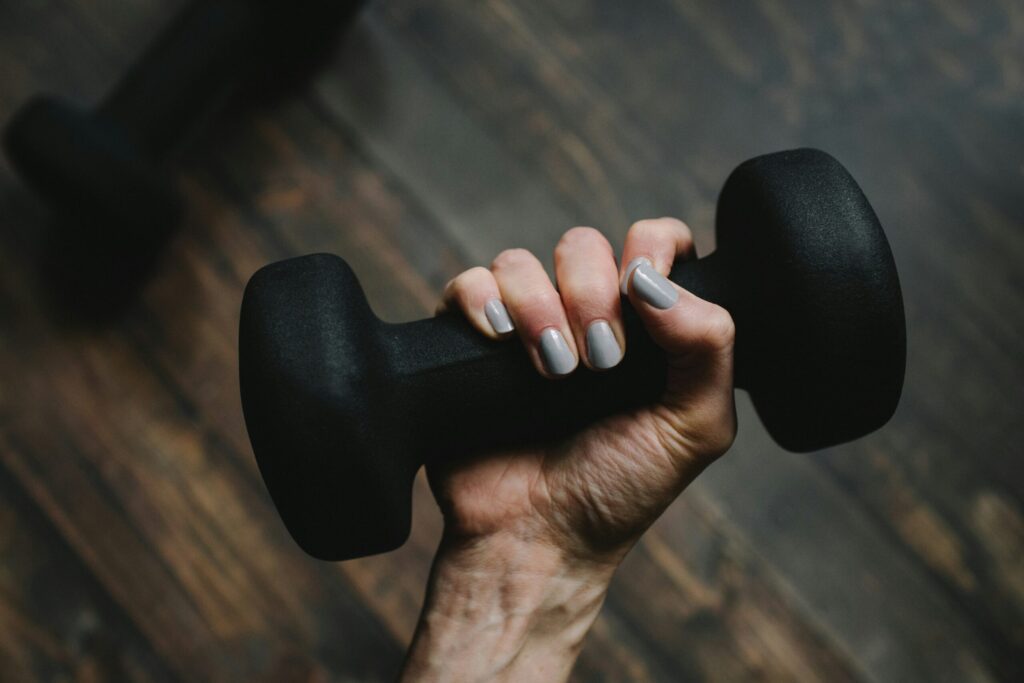May is Mental Health Month, and mental health challenges and cognitive decline are real concerns for many people; the number of people with mental health disorders is rising. According to Pujari (2024), by 2030, the World Health Organization (WHO) predicts that mental health disorders will be the leading cause of disability worldwide. While therapy and other pharmaceutical methods are important, exploring practical, non-pharmaceutical ways to maintain cognitive health and brain function as we age is more important than ever. That is where incorporating an exercise program comes in (Smith et al., 2021).
Exercise: More Than Just Physical, It is a Mental Boost
Science backs up the idea that exercise positively impacts brain health. These positive impacts range from improving mental health and helping us recover from brain injuries to fighting off neurodegenerative diseases. Research shows that exercising not only helps with physical fitness but also supports mental well-being (Peng et al., 2022). A small amount of physical activity can make a huge difference, especially in reducing stress, anxiety, or depression. Exercise works as a complement (or even alternative) to traditional treatments, and when you add it to a balanced routine, the benefits are even bigger. Aim for at least 150 minutes of moderate exercise weekly (or 75 minutes of vigorous-intensity activity), plus muscle-strengthening moves twice weekly.
Why Does it for Mental Health?
Movement is not just about feeling stronger; it is also about building a stronger brain. Cardio training, for example, running or walking, boosts brain health by creating new brain cells, growing blood vessels, and lighting up chemicals like dopamine, serotonin, and noradrenaline, which help improve mood, focus, and stress. It is also what may cause the post-run “runners high” thanks to endorphins and endocannabinoids kicking in (Monika et al., 2024).
Strength training offers even more brain-building effects. Resistance work triggers the release of muscle-based proteins that build new brain connections and stimulate irisin, a powerful hormone that crosses into the brain and directly boosts cognitive function (Mohammad et al., 2022). Let us not forget the power of slower movement, like yoga, tai chi, and mobility work. These practices are incredible for calming the nervous system and helping lower cortisol levels, which means less stress, better sleep, and a more balanced body and mind. In short, cardio wakes up the brain, resistance training strengthens it, and slower movement helps the body recover and stay grounded. However, doing all three in tandem gains resiliency with the body and mind.
The Right Kind of Exercise for Women Over 35
It is key to understand the right type and intensity of exercise for one’s season of life. For women over 35, this knowledge can be empowering, as it allows them to tailor their exercise routine to provide the most benefits:
- Aerobic exercise (like walking, running, or cycling): Improves memory and cognitive function.
- Strength Training (including resistance and weight training): Helps with overall brain health and cognitive performance.
- Mind-body practices (like Yoga or Tai Chi): Reduce stress and promote mental well-being.
It is also essential to find an intensity level that works. Moderate intensity works wonders for boosting mood and enhancing cognitive function, while high-intensity exercises can be efficient for fighting depression. The key is consistency, which means sticking to a routine that challenges and sustains your mental health.
Making Exercise a Habit
Getting started can feel overwhelming, but it does not have to be complicated. Consistency does not mean you need to train like an athlete overnight. It can be as simple as completing 1–2 workouts a week, even just 10–30 minutes at a time. Start with what feels comfortable. If a walk around the neighborhood feels manageable, then start there. From there, slowly layer in strength training and mobility work to build a stronger foundation.
The Big Picture
The research is clear: Exercise is one of the most powerful tools for boosting mental and cognitive health, especially as we age. For women over 35, staying active is critical for staying sharp, energized, and resilient. Whether managing stress, navigating anxiety, fighting off cognitive decline, or just wanting to feel like yourself again, incorporating movement into your life gives you a science-backed way to take control of your health. And the best part? It is never too late to start. Whether lacing up for a walk, picking up some weights, or rolling out a yoga mat, remember that every step, every rep, every stretch is an investment in a healthier mind and a stronger body.
References
1. Pujari V. Moving to Improve Mental Health – The Role of Exercise in Cognitive Function: A Narrative Review. J Pharm Bioallied Sci. 2024 Feb;16(Suppl 1): S26-S30. doi: 10.4103/jpbs.jpbs_614_23. Epub 2024 Feb 29. PMID: 38595617; PMCID: PMC11000952.
2. Smith, P. J., & Merwin, R. M. (2021). The role of exercise in management of mental health disorders: an integrative review. Annual review of medicine, 72(1), 45-62.
3. Peng J, Wu J. Effects of the FNDC5/Irisin on Elderly Dementia and Cognitive Impairment. Front Aging Neurosci. 2022 Mar 31;14:863901. Doi: 10.3389/fnagi.2022.863901. PMID: 35431908; PMCID: PMC9009536.
4. Mohammad Rahimi GR, Hejazi K, Hofmeister M. The effect of exercise interventions on Irisin level: a systematic review and meta-analysis of randomized controlled trials. EXCLI J. 2022 Feb 25;21:524-539. doi: 10.17179/excli2022-4703. PMID: 36110558; PMCID: PMC9441678.
5. Monika, U., & Romate, J. (2024). The Lesser-Known Phenomenon of Sports: A Systematic Review of Runners’ High. Indian Journal of Psychological Science Vol, 19(1).
